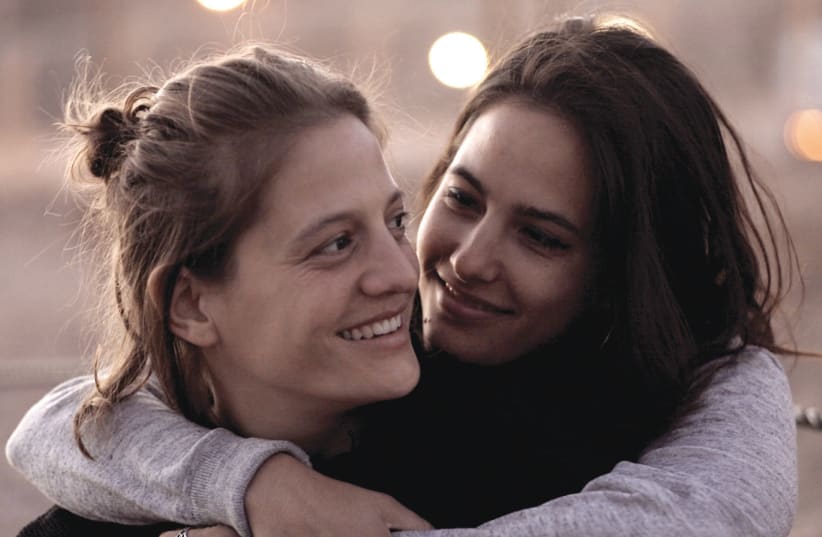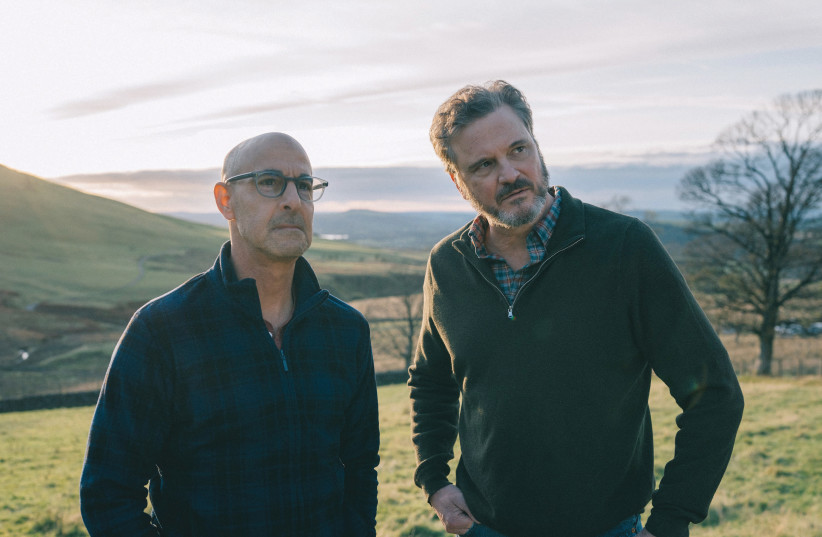TLVFest, the Tel Aviv International LGBTQ Film Festival (tlvfest.com), will run this year in an in-person version at the Tel Aviv Cinematheque and Ennis Jaffa’s Stage from November 11-20, in spite of spirited attempts by the Boycott, Sanctions and Divestment (BDS) movement to shut it down and delegitimize it.
This year features one of its best and most interesting programs, with 150 films, 47 of which are short movies by Israeli and Palestinian directors.
BDS has long leveled charges of “pinkwashing” against TLVFest, which is their way of saying that the Israeli government, which contributes part of the festival budget and has supported some of the Israeli films in the festival, uses the Israeli LGBTQ community’s progress and freedom as a way of diverting attention from oppression of Palestinians. There have been calls to boycott the festival several times before – most recently in 2020 – and this call was reiterated recently.
On November 1, the Queer Cinema for Palestine Festival announced it would hold festivals in 13 countries on the same dates as TLVFest. The irony is that – according to its website – no event will take place in Palestine.
That should come as no surprise since, as reported by Amnesty International in 2020, “[Lesbian, gay, bisexual, transgender and intersex] people continued to be denied the freedom to exercise their rights... Gaza criminalizes consensual same-sex sexual activity and makes it punishable by 10 years’ imprisonment.” (An email request to the Queer Cinema management for clarification on whether the festival would be held in Palestine was not returned by press time.)
A strong response opposing the call to boycott and in support of the festival came last month from a letter signed by 200 international celebrities, among them Helen Mirren, Mila Kunis, Billy Porter, Neil Patrick Harris, Gene Simmons, Sherry Lansing, Paul Feig, Greg Daniels, Lance Bass and many others. Then effort was sponsored by the Creative Community for Peace, a group of entertainment industry professionals.
The letter read, in part, “We stand united with all the participating filmmakers against the divisive rhetoric espoused by boycott activists who seek to misinform, bully and intimidate artists into removing their films from the festival or shame them for participating in the festival.”
REPRESENTATIVES OF the festival emphasized that the full program for TLVFest was going forward as planned. Artistic director and festival founder Yair Hochner said in a statement to filmmakers, urging them not to boycott: “Let me also state very clearly that TLVFest is not ‘pinkwashing’ anything. On the contrary. The very existence of TLVFest stands against the homophobic, racist and misogynistic parts of the parliament (Knesset) of Israel, and we say that openly and proudly. We will also continue to collaborate with queer Palestinian filmmakers who are interested in coexisting peacefully and building a much more tolerant and inclusive Middle East, both for Israelis and Palestinians.”
This year’s TLVFest will open at Ennis Jaffa’s Stage, which Hochner pointed out in his statement, is run by a Palestinian activist, and one of the hosts at the opening will be Palestinian actress and filmmaker Samira Saraya. She will also take part in a special panel session hosted by Khader Abu-Seif, who was in the documentary, Oriented, alongside award-winning documentary filmmaker and Labor Party MK, Ibtisam Mara’ana-Menuhin, about working in Israel as a Palestinian filmmaker. Saraya’s film, Polygraph, about an Arab lesbian nurse, will be screened.
The festival, which was founded in 2006, has always welcomed Palestinian filmmakers alongside Israelis, as well as diverse filmmakers from around the world. It is important not to let BDS and its politics obscure the fact that TLVFest is one of the most fun film festivals in Israel with a wonderful atmosphere and all kinds of special events, as well as quality films from around the world and Israel that are of interest to anyone who enjoys good movies.
This year’s festival will open with the film, Two, by Astar Elkayam, which stars Agam Schuster and Mor Polanuer as a lesbian couple who are excited about having a child but find that the road to motherhood is more complex than they imagined.
New international features include Lauren Hadaway’s The Novice, about a young woman who joins her college rowing team and pushes herself to the limit, which won three awards at the 2021 Tribeca Film Festival, including Best US Narrative Feature; Todd Stephens’s Swan Song, which stars Udo Kier as a hairdresser who undertakes a difficult journey to style a deceased client’s hair and costars Jennifer Coolidge and Linda Evans (yes, the Dynasty star, who came out of retirement for this role); and My Best Part, the first film by Nicolas Maury, one of the stars of Call My Agent!, who stars in this story of a young man who leaves Paris and goes home to live with his mother (Nathalie Baye).
The closing film will be Supernova, which stars Colin Firth and Stanley Tucci, and was directed by Harry Macqueen. It tells the story of a long-time couple who travel through rural England together as they face some devastating news.
One of the most anticipated events at TLVFest is the Drag Competition and this year’s contest will be judged by Ginger Minj, Latrice Royale, Fluid Snow, FKA Anton, Dekel Lazimi Lev and Hochner and will be hosted by Gallina Port Des Bras.
The festival will mark Transgender Awareness Day on November 20 with a screening of Imogen Kimmel and Doris Metz’s Trans – I Got Life, a documentary about a world-renowned transgender surgeon and his patients, all of whom are in different stages of gender reassignment, which will be followed by a panel featuring transgender leaders and many other films about transgender people are included in the festival.
The festival is run by the Tel Aviv Cinematheque and with the support of many organizations and groups, including the Culture Ministry, Israel Film Council, Tel Aviv-Yafo Municipality, Gilead, Dell, SPACE, Lev Cinemas and the Gesher Multicultural Film Fund.

